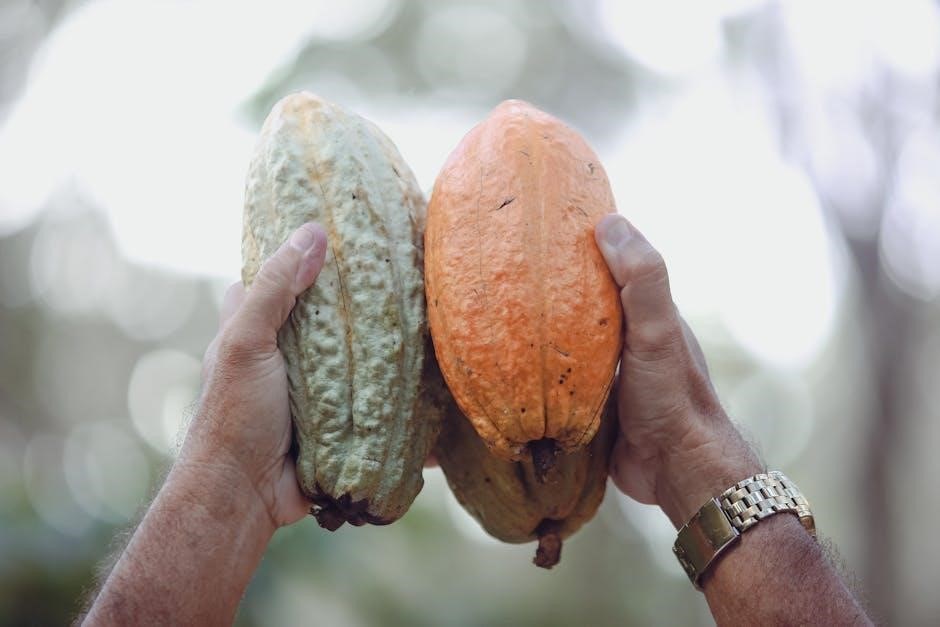The Novena for the Deceased is a nine-day prayer tradition seeking eternal rest for the departed and comfort for the grieving through focused devotion and reflection.
What is a Novena?
A Novena is a nine-day prayer devotion practiced by Catholics to honor a specific intention, saint, or deceased loved one. Originating from the nine days between Christ’s Ascension and the Pentecost, it reflects perseverance in prayer. For the deceased, the Novena seeks eternal rest for their souls and comfort for the grieving. Each day includes specific prayers, reflections, and sometimes the Rosary, fostering spiritual connection and hope. This tradition emphasizes faith, community, and the belief in the power of intercession, offering solace to those mourning while supporting the deceased on their journey to eternal life.
The Significance of Praying for the Deceased
Praying for the deceased holds profound spiritual significance, offering comfort to the grieving and assisting the soul’s journey toward eternal rest. The Novena for the deceased is rooted in Catholic tradition, emphasizing the belief that the living can support the departed through prayer. It provides solace to mourners, helping them cope with loss while fostering a sense of connection to their loved ones. By praying for the deceased, the faithful express compassion and hope, believing that their intercessions can aid the soul’s purification in Purgatory.
This practice also strengthens communal bonds, as families and communities unite in prayer; It reflects the Catholic doctrine of the Communion of Saints, highlighting the unity between the living and the dead. Through the Novena, the deceased are remembered with love, and their memory is honored, while the praying community finds spiritual renewal and hope.
Structure of a Novena for the Deceased
A Novena for the deceased typically spans nine consecutive days, with each day dedicated to specific prayers, reflections, and devotions. The structure often includes the recitation of the Rosary, followed by prayers for the soul of the deceased, such as the Padre Nuestro (Our Father), Ave María (Hail Mary), and Gloria (Glory Be). Biblical readings and reflections are also incorporated to provide spiritual guidance and comfort. Additionally, hymns and chants may be included to enrich the prayer experience. The novena concludes with a final prayer seeking eternal rest for the departed, emphasizing hope and consolation for the grieving family and community.

Historical Background of the Novena
Originating from Catholic tradition, the novena for the deceased is a nine-day prayer devotion honoring the departed and seeking their eternal rest, providing comfort to the grieving;
Origins of the Novena Tradition
The novena tradition traces its roots to early Catholic practices, where nine days of prayer symbolized completion and divine grace. Originally, novenas honored saints or prepared for feast days, but over time, they evolved to include prayers for the deceased. The novena for the departed gained prominence in Latin America, where it became a cherished ritual to honor loved ones, seeking eternal rest for their souls. This nine-day devotion, often accompanied by the rosary, reflects the Catholic belief in purgatory and the power of prayer to aid the souls journeying toward eternal light. It remains a deeply spiritual and comforting tradition for many families.
Evolution of the Novena Over Time
The novena tradition has evolved significantly over centuries, adapting to cultural and liturgical changes while retaining its core purpose. Originally tied to feast days and saints, it expanded to include prayers for the deceased, particularly in Latin America. The novena for the departed became a nine-day ritual, blending rosary recitations, biblical readings, and reflections. Regional customs enriched the practice, with local prayers and chants being incorporated. The tradition has been passed down through generations, with modern adaptations allowing for home observances and community participation. Its enduring appeal lies in its ability to provide spiritual solace and a structured way to honor loved ones, ensuring their memory lives on in prayer and faith.
Cultural Influences on the Novena
Cultural traditions have deeply shaped the novena for the deceased, reflecting regional devotion and practices. In Latin America, novenas often include vibrant rituals, such as reciting the Rosary with families and communities. Europe incorporates ancient chants and hymns, blending liturgical heritage with folk traditions. In Asia and Africa, local customs like drumming, dancing, or traditional prayers are seamlessly integrated. These cultural influences enrich the novena, making it a universal yet uniquely localized expression of faith. By adapting to diverse traditions, the novena remains a powerful way to honor the departed while fostering a sense of unity and shared spiritual purpose across cultures.

Key Elements of the Novena for the Deceased
The novena for the deceased includes prayers, Rosary recitations, biblical readings, reflections, and chants, each serving to honor the departed and seek eternal rest.
Prayers and Orations
The novena for the deceased emphasizes specific prayers and orations, traditionally recited over nine days, to honor the departed and seek their eternal rest. These include opening prayers, daily supplications, and closing orations, often invoking divine mercy and compassion. The Rosary is a central element, with each day featuring specific Mysteries and intentions for the soul. Prayers like the Ave María Purísima and Padre Nuestro are frequently used, alongside scriptural reflections. These orations not only comfort the grieving but also provide spiritual support for the deceased, aiding their journey toward eternal peace. The repetitive nature of the prayers reinforces their solemnity and devotion.
Biblical Readings and Reflections
Biblical readings and reflections are integral to the novena for the deceased, offering solace and spiritual guidance. Each day features specific passages, often from the Gospels, epistles, and Psalms, to provide comfort and reflection. These readings highlight themes of hope, resurrection, and divine mercy, helping mourners find strength in faith. Reflections accompany the readings, encouraging participants to connect the scriptures with their grief and the soul’s journey. This practice fosters a deeper understanding of faith and offers a meaningful way to honor the departed while seeking emotional and spiritual healing through God’s word.
Role of the Rosary in the Novena
The Rosary plays a central role in the novena for the deceased, offering a profound way to intercede for the soul’s eternal rest. Each day of the novena typically includes praying the Rosary, with its mysteries reflecting on the life, death, and resurrection of Christ. The repetition of the Hail Mary and Our Father fosters a sense of devotion and comfort for the mourners. The Rosary’s structure—Creed, Our Father, Hail Marys, and Glory Be—honors the deceased while seeking divine mercy. This timeless prayer tradition strengthens faith and provides solace, connecting the living with the departed through shared devotion and hope.
Importance of Music and Chants
Music and chants are integral to the novena for the deceased, providing solace and creating a sacred atmosphere for mourners. Traditional hymns and chants, such as Performing a novena involves nine consecutive days of prayer, reflection, and rosary recitation for the deceased; Begin with an opening prayer, followed by daily orations, biblical readings, and chants, culminating in a final prayer for eternal rest. Families and communities often gather to share in this tradition, fostering unity and spiritual support during mourning. Preparation for the Novena for the deceased involves creating a sacred space for prayer, gathering necessary materials, and setting intentions. Designate a quiet area in the home, adorned with religious symbols or photos of the deceased, to foster a reflective atmosphere. Collect prayer books, rosaries, and candles to ensure all participants are equipped for the daily rituals. Invite family and friends to join, sharing the schedule and structure in advance. Reflect on the life and virtues of the deceased to deepen emotional connection. Optionally, set specific intentions or themes for each day, focusing on aspects of their life or legacy. This communal and intentional preparation enriches the spiritual journey, fostering unity and comfort among mourners. A Novena for the deceased typically involves a nine-day commitment to prayer and reflection, with each day dedicated to specific intentions or themes. Begin with an opening prayer, followed by the Rosary, which is a central element of the novena. Each session may include biblical readings, reflections, and chants to honor the deceased and seek their eternal rest. Participants are encouraged to light candles and display photos of the deceased, creating a sacred atmosphere. The rituals emphasize community participation, with family and friends gathering to share in the prayers and support one another. These daily practices foster spiritual connection and provide solace to those grieving. The Novena for the deceased is often a communal practice that strengthens family and community bonds. Families gather daily to pray together, sharing in the recitation of the Rosary, biblical readings, and hymns. This collective participation provides emotional support to the grieving while honoring the deceased. Community members may also join, contributing to a sense of unity and shared purpose. In many cultures, neighbors and friends prepare traditional foods or decorations for the novena, fostering a spirit of solidarity. This communal approach not only eases the burden of loss but also reinforces the belief in the power of prayer and collective intercession for the soul of the departed. Sample prayers and readings provide guidance for each day of the novena, including opening prayers, daily reflections, and final blessings, offering comfort and spiritual support. The opening prayer sets the tone for the novena, seeking eternal rest for the deceased and comfort for the grieving. It begins with a request for divine mercy and guidance, invoking the saints and the Virgin Mary for intercession. The prayer also asks for the purification of souls and their swift entry into eternal light. It concludes with a plea for strength and solace for those mourning, trusting in God’s infinite love and justice. This prayer is a heartfelt invocation to ease the journey of the departed and bring peace to those left behind, grounding the novena in faith and hope. Each day of the novena includes specific prayers and intentions, focusing on the deceased’s eternal rest and the grieving family’s comfort. The prayers begin with an invocation of divine mercy, followed by reflections on scripture and supplications for the soul’s purification. Daily prayers include the Rosary, emphasizing the deceased’s journey toward eternal light. The novena progresses from seeking forgiveness to requesting guidance for the departed and concludes with prayers for their eternal rest. These daily devotions provide a structured way to honor the deceased and offer solace to those mourning, grounding the novena in faith and hope for the soul’s peaceful transition; Grant, O Lord, eternal rest to the souls of the faithful departed. May their journey through purgation be swift and may Your divine mercy embrace them. Through the intercession of the Blessed Virgin Mary, we pray for their entrance into Your eternal kingdom. Comfort the grieving family with peace and strength. Let the Rosary and our prayers be a source of solace for their souls. May Your light shine upon them, guiding them to eternal rest. We ask this through Christ, our Lord. Amen. Traditional Prayer for Eternal Rest Latin American traditions include solemn processions, while European novenas often feature Masses. Asian and African practices blend local customs with hymns and prayers for the departed. In Latin America, the Novena for the Deceased is deeply rooted in cultural and religious practices. Families gather for nine consecutive days to pray the Rosary and recite specific novena prayers for the departed. Traditional foods, candles, and flowers are placed at home altars to honor the deceased. Music and chants, such as traditional funeral hymns, accompany the prayers, creating a solemn yet comforting atmosphere. In Mexico, the Novena often coincides with the Day of the Dead celebrations, blending indigenous and Catholic traditions. These practices reflect the region’s vibrant faith and love for those who have passed, offering solace to the grieving while supporting the spiritual journey of the deceased. In Europe, Novena practices for the deceased are deeply intertwined with Catholic liturgical traditions. Families often gather in churches or homes to recite the Rosary and novena prayers, emphasizing the souls’ journey toward eternal rest. Many European countries observe the Novena during All Souls’ Day, incorporating Masses and liturgical readings. Traditional hymns and chants are commonly used, creating a solemn yet comforting atmosphere. In Spain and Italy, Novena practices include processions and communal prayers, reflecting a strong communal faith. These customs highlight Europe’s rich spiritual heritage, blending ancient traditions with devout prayer for the departed, offering both solace to the living and spiritual support to the deceased. In Asia and Africa, Novena observances for the deceased blend local traditions with Catholic devotion. In the Philippines, novenas are integral to funeral rites, with families reciting prayers and rosaries at home or in churches. India’s Catholic communities, especially in Goa, observe novenas with solemn Masses and traditional hymns. In Africa, novenas are often combined with cultural practices, such as communal singing and storytelling, to honor the departed. These regions emphasize the importance of community support during mourning, with neighbors joining families in prayer. The Novena serves as a bridge between earthly grief and heavenly hope, adapting to cultural contexts while maintaining its spiritual essence. The Novena for the Deceased is rooted in Catholic theology, emphasizing prayer for souls in purgatory, the Communion of Saints, and scriptural references like 2 Maccabees, seeking eternal rest. The practice of praying for the deceased is deeply rooted in Scripture, particularly in 2 Maccabees 12:45, which highlights praying for the dead to obtain pardon for their sins. This tradition is further supported by the Catholic Church’s teachings on the Communion of Saints, where the living and the deceased are united in Christ. The Novena for the Deceased draws inspiration from biblical passages that emphasize intercession and the power of prayer. By praying for the souls in purgatory, the faithful participate in the Church’s mission of offering spiritual support to the departed, ensuring their journey toward eternal rest is aided by the prayers of the living. Purgatory is a Catholic doctrine describing a state of purification where souls undergo cleansing before entering heaven. It is rooted in the belief that some souls, though destined for eternal life, may still need purification from earthly sins. The Novena for the Deceased aligns with this concept by offering prayers and sacrifices to assist souls in purgatory. Through this devotion, the living demonstrate solidarity with the departed, helping them attain eternal rest. The practice reflects the Church’s teaching on the Communion of Saints, emphasizing the unity between the living and the dead in Christ. Prayers during the novena seek to ease the souls’ journey toward heavenly union. The Communion of Saints is a fundamental Catholic teaching emphasizing the unity of all believers, both living and deceased, in Christ. During the Novena for the Deceased, this doctrine is central, as it underscores the belief that prayers of the living can support the souls of the departed. The Novena serves as a bridge between the Church Militant (the living) and the Church Suffering (the souls in purgatory), fostering a spiritual connection. Through this communal prayer, the faithful intercede for the deceased, seeking their purification and eternal rest. This practice strengthens the bond of faith and hope among believers, reinforcing the idea of a shared spiritual journey toward heaven. Praying a Novena for the deceased provides spiritual comfort to the grieving, supports the soul’s purification, and strengthens faith and hope in eternal life and reunion. The Novena for the deceased offers profound spiritual comfort to those grieving, providing solace through prayer and reflection. By focusing on divine mercy and eternal rest, it helps mourners process loss, find peace, and reconnect with their faith. The structured nine-day devotion creates a sense of routine and emotional healing, allowing individuals to express sorrow while trusting in God’s plan. Shared prayers and communal support strengthen familial bonds and foster a collective sense of hope. This sacred tradition reminds the bereaved of the soul’s journey toward eternal light, bringing consolation and reassurance during life’s most challenging moments. The Novena for the deceased is a powerful expression of spiritual support, offering prayers and suffrages to aid the soul’s journey toward eternal rest. Through nine days of devotion, the faithful seek God’s mercy and forgiveness for the departed, believing these prayers can alleviate their time in purgatory. The recitation of the Rosary, biblical readings, and specific novena prayers are central to this tradition, emphasizing the belief in the communion of saints. By interceding for the deceased, the living demonstrate their love and hope for the soul’s purification and ultimate union with God. This sacred practice reflects the Catholic belief in the efficacy of prayer to assist the departed in their transition to eternal life. The Novena for the deceased serves as a powerful catalyst for strengthening faith and hope among the living. By engaging in nine days of focused prayer, individuals deepen their spiritual connection and trust in God’s divine plan. This tradition fosters hope in the belief that the departed soul is aided through prayer, while the living find solace in communal devotion. The repetition of prayers, reflections, and scriptural readings reinforces faith in God’s mercy and the promise of eternal life. Through this sacred practice, mourners are reminded of the communion of saints, inspiring resilience and trust in God’s providence during times of grief and uncertainty.
How to Perform a Novena for the Deceased
Preparation for the Novena
Daily Rituals and Practices
Incorporating Family and Community

Sample Prayers and Readings
Opening Prayer for the Novena
Prayers for Each Day of the Novena
Final Prayer for Eternal Rest

Cultural Variations of the Novena
Novena Traditions in Latin America
Novena Practices in Europe
Novena Observances in Asia and Africa

Theological Basis of the Novena
Scriptural Foundation for Praying for the Dead
The Concept of Purgatory

The Role of the Communion of Saints

Benefits of Praying a Novena for the Deceased
Spiritual Comfort for the Mourning

Spiritual Support for the Deceased
Strengthening Faith and Hope
